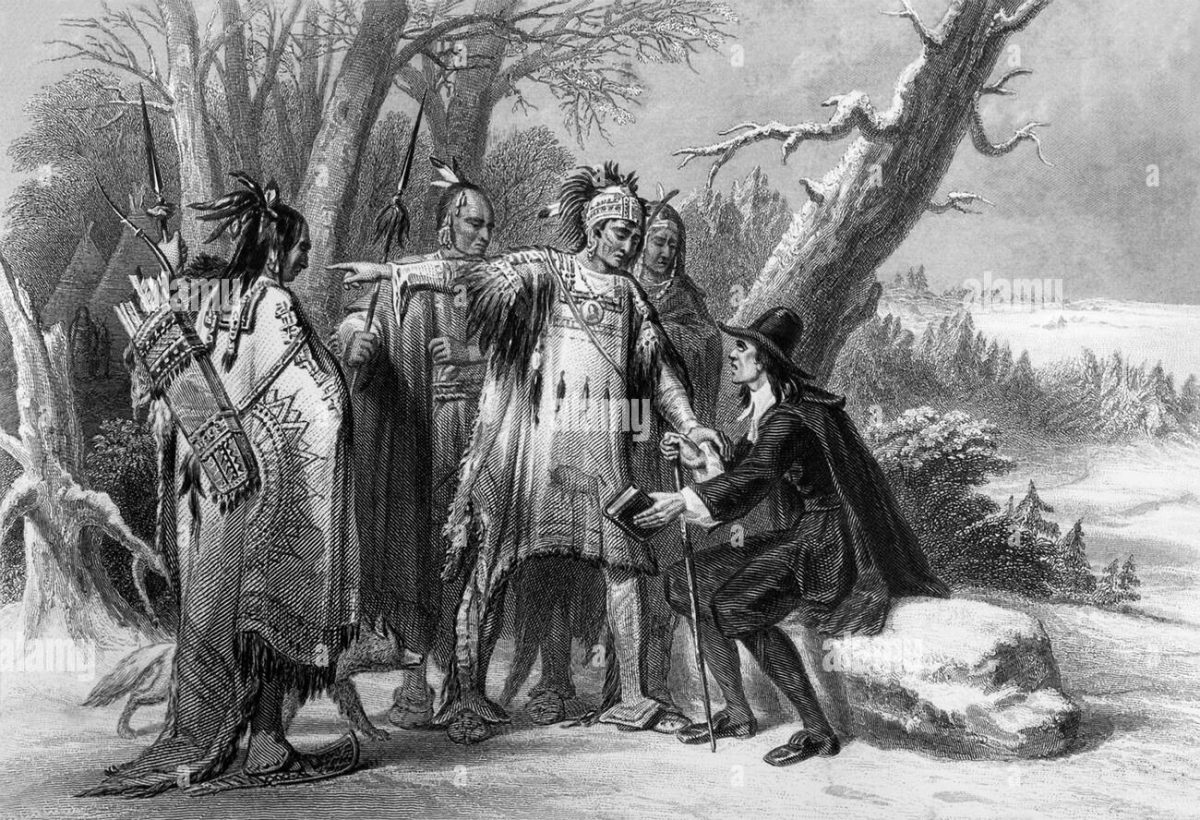The celebration of Thanksgiving has long been considered an integral part of American culture, tracing its roots back to seventeenth-century colonial settlements in New England. Historically, it’s representative of peaceful agreements between colonial settlers and the Native American tribes, who taught them how to grow their food and survive. It became a national holiday when declared as such by Abraham Lincoln in 1863. Since then, it’s come to widely represent a dedication to family, gratitude, and the enjoyment of sharing a meal with loved ones. This is a widely understood American outlook, but what about the Native American perspective? What do Native Americans think about this well-known tradition in America?
To help further answer this question, it’s important to note the historical context of the celebration itself. White settlers had been arriving at the eastern coast of North America for decades, since the time Puritan Pilgrims aboard the Mayflower arrived in New England in 1620. The spread of old-world diseases to vulnerable Native populations was frequent. The kidnapping of natives by Europeans into slavery was not uncommon and the ruthless slaughter of Native tribes by European settlers were all outcomes of the brutal colonial process, in the effort to secure much desired land. Many native tribes were wiped out completely, whilst others were faced with weakened, diminished populations. But when the Mayflower Pilgrims, whose numbers dwindled to nearly half during the winter of 1620, it was the Native tribe of the Wampanoags who taught them how to survive. This was a decision made by Wampanoag Chief Powhatan, who ultimately reasoned that allying with the colonists and obtaining their weapons would strengthen his disease-ravaged population. So, thanks in full to the help of the Natives, the Pilgrims were able to enjoy a successful harvest in the fall of 1621. They celebrated with a feast, what has now been regarded as the first Thanksgiving.
So, what about the Wampanoags? After all, they weren’t even invited to this feast. In actuality, some settlers had shot off their muskets amidst the celebration, prompting one hundred Wampanoag warriors to rush to the scene, believing they were at war. They only joined after they were told it was a celebration. Similar “thanksgivings” would be held by other settlers later on, sometimes after the successful massacre of Native tribes. One such instance occurred when John Winthrop declared a celebratory feast after the slaughter of seven hundred Pequot men, women, and children in 1637. As colonial settlers continued to arrive, colonies began to expand in size and influence, and native tribes continued to succumb to disease and frequent genocide — as settlers forcibly gained control of their land. If a native tribe was not destroyed, they were dispersed and relocated to different parts of the country. They were often forced to assimilate through the use of oppressive and restrictive American Indian residential schools where their languages, customs, and styles of dress were forbidden. It is reasonable, then, to understand how Thanksgiving has the potential to serve as a reminder of the severe atrocities and abuses dealt to Native Americans by white colonists in their pursuit to claim indigenous lands for themselves.
For many Native Americans, the celebration of Thanksgiving itself is typically considered a day of both mourning and protest. They are reminded of the centuries of ruthless genocide, colonial subjugation, forced assimilation, and racial prejudice that would plague their ancestors, and continue to haunt their descendants, following the arrival of colonists into the New World. Although some Native groups do celebrate Thanksgiving and view the holiday in a different light, generally the Native perception is one steeped in hundreds of years of torment and abuse. The holiday also marks the significant establishment of a successful colonial settlement. It helped to signal the start of the end when it came to the ownership of Native lands, the practice of Native culture, as well as customs and their autonomy within the new nation that would become the United States.
Today, Thanksgiving attempts to embody the revered values of family and gratitude. As we celebrate what we are grateful for, we must also acknowledge the controversial history of this holiday. We should recognize the inconsistencies in the sugarcoated narrative that we are often told about Thanksgiving and the devastating impact it has had on Native American communities. Thanksgiving is a day of celebration, but it should also be a day of remembrance. Honoring the countless number of natives who’ve lost their lives, and their land, and suffered heinous cruelties in the name of furthering colonial greed and power.

